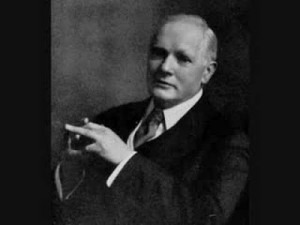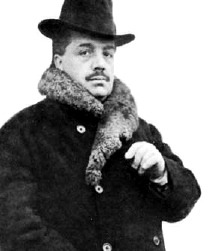
Sir Donald Francis Tovey
Tovey believed that everything of importance in music lay within the province of the “naïve listener.” This imagined personality had no specialist training, only a willing ear and a ready sensibility. Nevertheless, even the untrained ear could intuitively recognize the genius in the masterworks of Bach, Beethoven and Brahms. For Tovey, that genius could be glimpsed via music analysis, and it figured prominently in his program notes from the very start. However, London concert audiences were certainly not prepared for his 47-page essay on the Goldberg Variations! His Essays in Musical Analysis were eventually collected into a series of books, and he contributed decisively to the Encyclopedia Britannica of 1911 and to subsequent editions. As the “Reid Professor of Music” at the University of Edinburgh, Tovey wrote major essays on Gluck, Haydn, Beethoven, Schubert, and Brahms. In addition, he prepared a number of performing editions, including a 1931 completion of Bach’s Kunst der Fuge. His annotated edition of the WTC had been reprinted countless time, and on the recommendation of Sir Edward Elgar, Tovey was knighted in 1935.
Sir Donald Francis Tovey: Cello Concerto, Op. 40
Although highly esteemed as a music critic and writer, Tovey was also acknowledged as a capable pianist and composer. In 1894 he appeared together on stage with Joseph Joachim, and his regular performances with the Joachim Quartet included a 1905 concert featuring Brahms’s Op. 34 Piano quintet. In a series of chamber music concerts in London, Tovey presented several of his own works, and he gave similar concerts in Vienna and Berlin. He played his Piano Concerto in 1903 under Henry J. Wood, and in 1906 under Hans Richter. His Symphony was completed in 1913, and eventually followed by the opera The Bride of Dionysus. In 1925, Tovey made his debut in the United Stages as a pianist, and he continued to actively contribute to the concert series in Edinburgh. His Cello Concerto was written for his friend Pablo Casals in 1932/33. Tovey suggested that it contained “much of the juiciest music I have yet composed.” Situated between Brahms and Elgar, it is a highly dignified and lyrical composition, and its release was accompanied, as you might well imagine, by an extensive set of program notes!
Air for Strings

